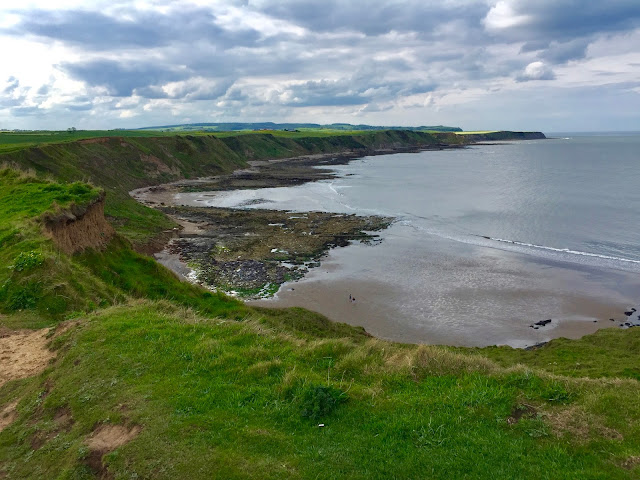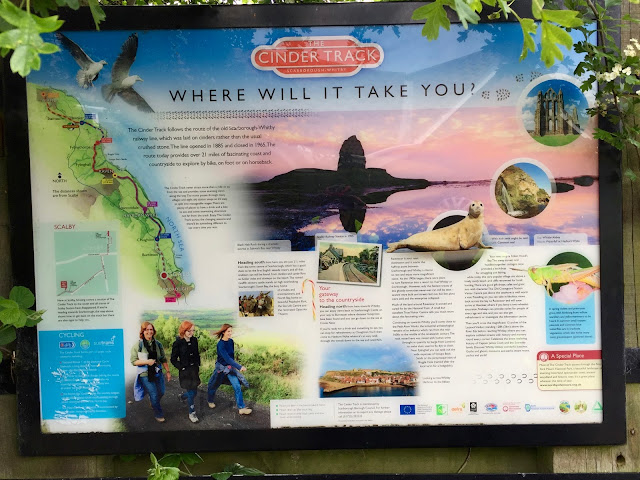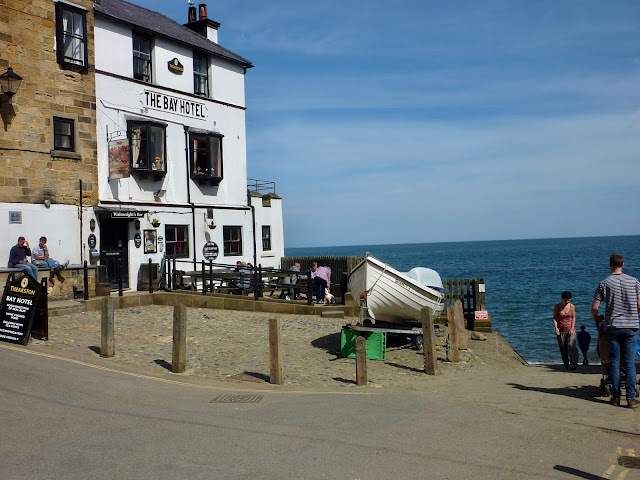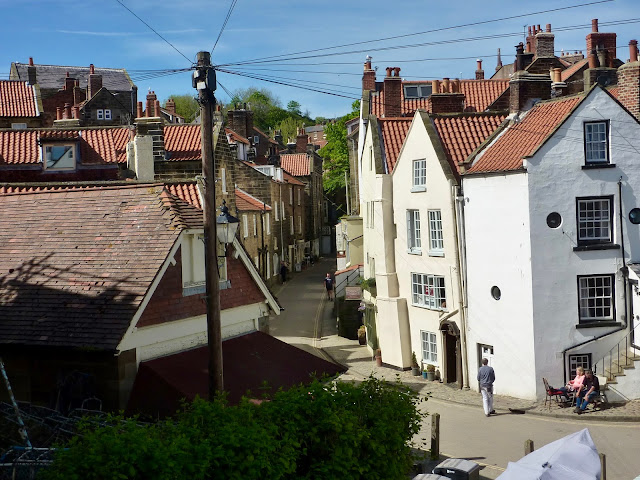According to the Lonely Planet guide for England, Scarborough is where
the tradition of English seaside holidays began. It goes on to explain that in
the 1660's the first batch of visitors came to the site of a local spa for its
health giving properties this was followed by the belief in the health giving
properties of the sea and in the 1730's Scarborough witnessed the appearance of
wheeled bathing carriages on its beech. The railway arrived in 1845, which
brought in many visitors and to this day this picturesque seaside resorts
popularity has never waned. The shoreline is split by the Scarborough Castle
with the harbour and the donkey rides, fish and chip restaurants, and slot
machine arcades along with the cheap gift shops situated in the South Bay
whereas the North Bay has beach chalets, the Sea Life and Marine Life
Sanctuary, the Northway Railway and access to the Cleveland Way cliff walk.
The nearest campsite to the resort is Scarborough Camping and Caravan
Club Site at Scalby. Although the site has 300 pitches its very well laid out,
well kept and very quiet. The facilities are first rate and the camp staffs are
very helpful and friendly. It has a fish and chip takeaway on site also a
well-stocked shop. You can cycle into town via the Cinder Track or walk via the
coastal path down into the South Bay and there is also a bus service from just
outside the camps main entrance. Fortunately we had very good weather for our
4-night stay that allowed us to explore the area both on foot and bike.
 |
| The Cliff Top Walk that forms part of the Cleveland Way. |
A short distance from the site is the Scarborough to Whitby Cinder Track
that was the route of the old railway that carried both passengers and goods up
and down the North Yorkshire coast. The line was in use from 1885 until its
closure in 1965. Following its closure the local Scarborough Council bought the
line and it is now part of the National Cycle Route open to walkers, horse
riders and of course cyclists. Our first trip along this off-road track was
into Scarborough, the track finishing in Sainsbury's car park which is handy
for a wee bit of shopping. You can if you wish go further into town, which we
did, and have a good look around.
It was on this trip that we visited St Mary's Parish Church, which dates
from the 12th century. Its main claim to fame is that its cemetery contains the
remains of Anne Bronte the English novelist and poet. The church was originally
a lot bigger but was largely destroyed during the siege of Scarborough Castle
during the English Civil War. Rebuilt in the late 17th and restored in the mid
19th century.
The following day we ventured 13 miles north on the Cinder Track that at
times can be hard going with its steady incline and rough surface. First stop
was at The Station House at Cloughton for coffee and buttered teacakes in a
beautiful garden adjoining what was the station platform. This was the busiest
station on the line having a cattle dock, goods shed; passing line and coal
weigh bridge. It also won many prizes for the best kept station between 1932 and
the lines closure. Standing on the original track bed is Oscar a 1962 Derby
built Mk1 railway carriage that has been fully refurbished to provide
air-conditioned and heated self catering accommodation for up to 6 people. Also
the Station House offers bed and breakfast accommodation.
Moving on through Hayburn Wyke to ‘the town that never was’ at Ravenscar
for our picnic lunch. Ravenscar Station is the highest point on the railway
line at 192m and was meant to service a seaside resort to rival Scarborough but
in 1911 the Estate Company went bankrupt, and other than the hotel and a few
roads, was never built. One of the problems could have been that access to the
shore was at the bottom of a shear cliff face!
 |
| Some wonderful views from the Cinder Track. |
A number 12 bus will transport you into the Scarborough town centre and
drop you off a short walk from Scarborough Castle. Even if you are not
interested in medieval castles the views from its commanding position from the
headland that divides the North and South Bays is well worth the climb and the
entrance fee. And for those of you that are interested in a wee bit of history
then this is the local spot to visit. The site of the castle is said to
'encompass an Iron Age settlement, a Roman signal station, an Anglo
Scandinavian settlement and chapel, the 12th century enclosure castle and a
18th century battery’. In the Master Gunners House you will not only find some
good coffee and cake but also an exhibition showing the damage done to
Scarborough in WW1 by the German Navy. All in all an interesting experience.
From the Castle you can walk down to the North Bay shore line and the
harbour for some lunch. Then you can walk from the Marina along Marine Drive,
Royal Albert Drive until you reach the rough-hewn steps that will take you along
the cliff edge and eventually back to the campsite.


























No comments:
Post a Comment